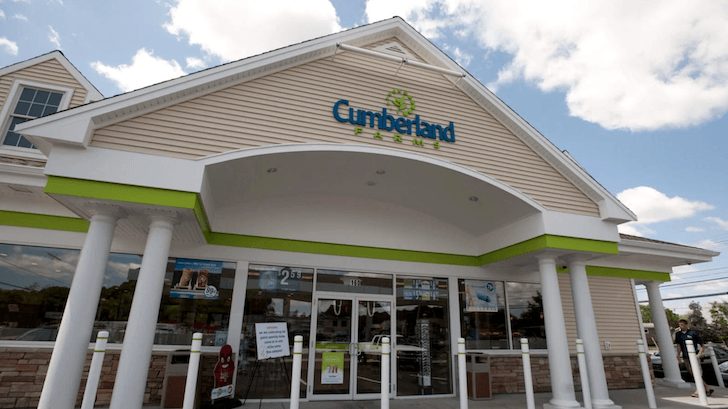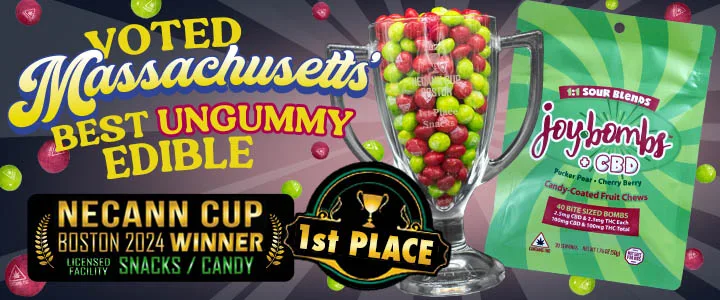
Cannabis aficionados and industry observers have lamented over the slow rollout of retail stores across the state. After a year of operations, only 33 shops are open in a market that will likely top 350 stores.
At the time of this writing, there were 247 stores in the Massachusetts Cannabis Control Commission retail license queue, meaning another 214 should be opening in the future. That figure doesn’t include Boston, Cambridge, Somerville, and other communities that have yet to award their full allotment of local marijuana approvals.
A little background: Of the Commonwealth’s 351 communities, 260 voted Yes on the 2016 ballot question #4 that legalized adult-use (recreational) of marijuana, and very few of those municipalities have voted to allow more retail stores than the legally mandated minimum. Cities and towns can only allow less than the legally mandated minimum store count if they hold a municipal-wide vote.
Once upon a time, Massachusetts law limited retail liquor license ownership to three licenses per owner. That wasn’t a bad deal for liquor store owners, but supermarket chains couldn’t sell alcoholic beverages across their full system. In 2006, the supermarket chains squared off against the Massachusetts Package Stores Association to challenge the law with a referendum question. The Sale of Wine by Food Stores Initiative was defeated on the November 2006 ballot, but grocery stores licked their wounds and returned to the battle in 2011 with a new proposed question. On the second attempt, the sides worked out a compromise with the state legislature, resulting in a gradual increase in the number of liquor licenses that can be held by a single company: two additional licenses in 2012, two in 2016, and two more in 2020. Stated differently, three became five, five became seven, and on Jan 1, 2020, seven becomes nine. Beer and wine wholesalers and supermarkets agreed not to push a fresh challenge to the store count until 2021 at the soonest, while convenience stores were not part of that battle or the ensuing truce.
Enter Cumberland Farms, which operates 939 convenience stores, 206 of them in Massachusetts (the company was acquired by British convenience store giant EG Group earlier this year). With its massive network, Cumberland Farms apparently wants to sell more alcoholic beverages and has successfully placed a question on the 2020 ballot that could lift the state’s cap on the number of liquor licenses that can be owned by a single retailer, and also forge a new class of beer and wine license for food stores… and that is where the company’s plans may seriously impact the future of cannabis retail in Mass.
According to state regulations, the legally mandated minimum marijuana retail store count is equal to “20 percent of the number of licenses issued within the city or town for the retail sale of alcoholic beverages not to be drunk on the premises…” In simpler terms, with minor exception, 20% of the number of package stores and beer and wine retailers (convenience stores and supermarkets) rounded up to the next whole number. The minor exception includes food companies that infuse alcohol into food items sold on premise—chocolates, liquor-infused cakes, etc. Generally, many of these carry-out liquor licenses are for full-inventory package stores.
Cumberland Farms’ proposed new liquor licenses will allow it, subject to local municipal approval, to sell beer and wine at 199 of its 206 stores throughout the state that currently lack a beer and wine retail license. Because those licenses are governed by the same law (M.G.L. c.138 Section 15) that is used to calculate the minimum number of marijuana retail outlets, Cumberland Farms’ proposed ballot question could increase minimum marijuana store counts in many communities—could, not will.
Most communities have an odd number of carry-out liquor licenses—odd meaning not evenly divisible by five. As an example, Massachusetts Alcoholic Beverage Control Commission (ABCC) data shows that Framingham has 30 carry-out licenses divvied up thusly: 21 liquor beverage stores, 4 convenience stores, 2 gas stations, 2 supermarkets, and one artisan shop that infuses liquor into chocolate sold in their retail outlet. Framingham is in the process of granting local approval to six marijuana retailers and also happens to host one Cumberland Farms store. If the Cumberland Farms store is allowed a beer and wine retail license, Framingham will have 31 ABCC carry-out licenses and will increase its marijuana retail store count from six to seven.
Framingham isn’t alone. It appears 30 Massachusetts communities that voted Yes on 4 have a number of ABCC carry-out licenses evenly divided by five. That means adding a convenience store beer and wine license in those communities will increase the minimum marijuana retail count by one store as well. That assumes impacted communities will only add one such additional carry-out liquor license; in 36 such communities, adding just two new beer and wine licenses will increase the minimum marijuana retail count by one store.
Cumberland Farms has 206 stores across Massachusetts, with seven that sell beer and wine, the current state limit. 7-Eleven boasts 203 stores, five that sell beer and wine. Jeff Lenard, vice president of Strategic Industry Initiatives for the National Association of Convenience Stores, indicates there are 3,279 “C-stores” across the Commonwealth, 1,866 of which sell motor fuels. Compare that count to 3,056 carry-out liquor licenses as reported by the ABCC. Admittedly, quite a few of those ABCC licenses are held by convenience stores, but a review of ABCC license data shows numerous convenience store chains that could seek to increase their license count if Cumberland Farms has its way.
If the Cumberland Farms question makes it to the ballot—the Massachusetts Package Stores Association has sued, arguing the questions is constitutionally flawed—not all stores in all municipalities will be granted approval for a liquor license. However, the ensuing increase in these licenses will certainly impact the minimum license counts of marijuana retail outlets in many communities. One or two convenience store coolers dedicated to beer and wine could translate to one additional local marijuana retail license in that community. For communities like Framingham that currently have an even number of ABCC carry-out licenses, it just requires one of these proposed add-on licenses to trigger another cannabis retailer. Forty-five communities will see an increase in marijuana stores if two new beer and wine licenses are granted.
On the surface, the battle playing out in Mass may appear to be between convenience stores and package stores; but while it may not be intentional, there’s also a potentially large impact for the cannabis community.


























